Proceedings of the 4th World Congress
on New Technologies (NewTech'18)
AUGUST 19 - 21, 2018 | MADRID, SPAIN
The keynote information for the 4th World Congress on New Technologies (NewTech'18) is as follows:
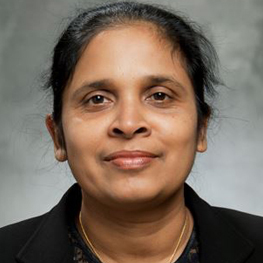
Dr. Devika Chithrani
University of Victoria, Canada
ICNFA'18 Keynote Speaker
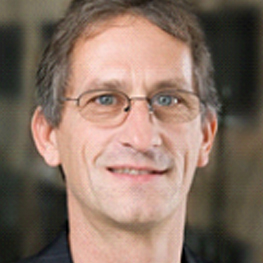
Dr. Ralf Greiner
Max Rubner-Institut, Germany
ICNFA'18 Keynote Speaker
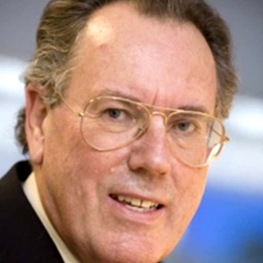
Dr. Richard I Kitney
Imperial College London, UK
ICBB'18 Keynote Speaker
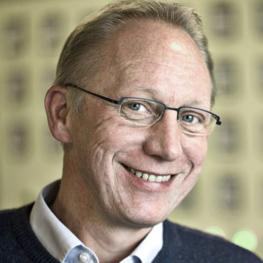
Dr. Søren Linderoth
Technical University of Denmark
ICERT'18 Keynote Speaker
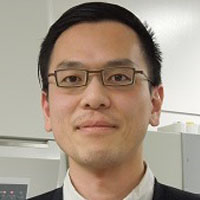
Dr. Daisuke Onoshima
Nagoya University, Japan
ICNFA'18 Keynote Speaker
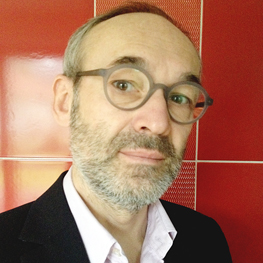
Dr Christian Paulik
Johannes Kepler University Linz, Austria
ICERT'18 Keynote Speaker
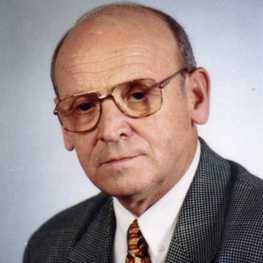
Dr. Marek Trojanowicz
University of Warsaw, Poland
ICEPR'18 Keynote Speaker
ICERT'18 Keynote Speakers

Dr. Søren Linderoth
Technical University of Denmark
ICERT Keynote
Søren Linderoth is professor in functional ceramics for energy purposes, and since 2012 Head of Department of Energy Conversion and Storage (DTU Energy). He is the co-author of more than 250 scientific papers and 30 patents - in areas of fuel cells, electrolysis, membranes, magnetocaloric heat pumps, and more. Søren Linderoth received his MSc and PhD from the Technical University of Denmark.
Topic of Keynote:
Energy Storage for Energy Security

Dr. Christian Paulik
Johannes Kepler University Linz, Austria
ICERT'18 Keynote Speaker
Univ. Prof. DI Dr. Christian Paulik, is head of the Institute for Chemical Technology of Organic Materials at the Johannes Kepler University in Linz Austria. He earned his master and PhD in technical chemistry at the Johannes Kepler University Linz in the field of polymer science. In 1995 he started his career at Borealis, a major company in the field of Polyolefins, in the central R&D department. After various positions in the global R&D organization of Borealis he moved back to academia in 2010 accepting the offer by the Johannes Kepler University. In his actual research Prof. Paulik is focusing on polymerization and structure property relations of Polyolefins and special polymers, e.g. melamine based materials and antimicrobial polymers, 3D printing of polymers and high-pressure biotechnology. He is also active in the field of polymer additives and bio based resources.
Topic of Keynote:
Can Plastics Save the World?
ICNFA'18 Keynote Speakers

Dr. Devika Chithrani
University of Victoria, Canada
ICNFA Keynote
Dr. Devika Chithrani is an assistant professor in the Department of Physics and Astronomy at University of Victoria and also part of the medical physics faculty in British Columbia Cancer Agency, Victoria, Canada. She is also an iBEST research scientist at Li Ka Shing Knowledge institute, St. Michael hospital, Toronto. She was a recipient of the prestigious Natural Sciences and Engineering Research Council (NSERC) doctoral award and NSERC post-doctoral award during her graduate and post-graduate studies at university of Toronto, Canada. She was the recipient of the Physics Gold medal and Faculty Gold medal at her undergraduate convocation.
As the director of the Nanoscience and Technology development Laboratory, Dr. Chithrani leverages nanotechnology to create innovations that advance the care of cancer patients. She is using gold nanoparticles as a radiation dose enhancer in cancer therapy. In addition, she is improving the control we have over highly toxic anticancer drugs used in chemotherapy by developing gold nanostructures and testing their intracellular effect. She was able to show for the first time that gold nanoparticles can be used as a radiation dose enhancer at clinically relevant MeV energies. This work was featured on the cover of the Journal of Radiation Research. She has been on expert panels at both ASTRO (Largest radiation oncology conference) and AAPM (Largest medical physics conference) to discuss the road map to clinical translation of gold-mediated radiosensitization. She has developed three dimensional tumor models to optimize use of nanotechnology in cancer therapy. This work was featured on the cover of Nano-Micro Letters journal. Dr. Chithrani is considered as one of the leaders in the field of nanotechnology and her publications have received over 6000 citations in few years. She is currently directing two Nanoscience and Technology Development Laboratories in Toronto and Victoria in Canada. Dr. Chithrani has earned a strong international reputation for her innovative research through her many review articles, book chapters, and invited presentations. She is an associate editor of many nanotechnology based journals. Her passion is to develop smart nanomaterials to improve exiting cancer therapeutics. She believes that many side effects due to chemotherapy can be reduced by controlled delivery of anticancer drugs using smart nanomaterials. The improved delivery of cancer therapeutics will reduce health care cost worldwide while improving the quality of life of cancer patients.
Topic of Keynote:
“Smart” Nanomaterials for Cancer Therapy

Dr. Ralf Greiner
Max Rubner-Institut, Germany
ICNFA Keynote
Ralf joined the Federal Research Centre for Nutrition, Karlsruhe, Germany in 1990 as a Ph.D. student after graduating in Chemistry at the University of Stuttgart. In the early steps of his career as Deputy Head of the Centre for Molecular Biology he was mainly engaged in research in respect to genetically modified food and enzyme for food processing, with phytases in the centre of his interests. In 2007 Ralf held a position as a Visiting Professor for Biochemistry and Molecular Biology, Department of Bioprocess Engineering, Federal University of Paraná, Curitiba, Brazil working on solid state fermentation and fungal enzyme production. In 2008 he returned to Karlsruhe where he became Head of the Department of Food Technology and Bioprocess Engineering of the Max Rubner-Institut (MRI). His research is focused on studying and modelling conventional and new processing technologies, as well as on food nanotechnology, but phytases are still in the focus of his interests. Ralf is a representative of MRI in several international and national associations on food technology, food control and food nanotechnology. In 2012 Ralf accepted the position as an Honorary Assistant Professor in the School of Biological Sciences of the University of Hong Kong. His research activities resulted in about 155 original papers in peer-reviewed journals, 45 book chapters and 280 abstracts or short papers in congress proceedings. Currently, Ralf also acts as Deputy to the President of the MRI. In addition, he is Editor for Food Control (Europe and South America).
The focus of the research activities in the area of food nanotechnology is on the one hand the establishment of analytical methods to characterise and visualise nanomaterials in complex matrices such as foods and beverages, digestion fluids and even within cells. On the other hand the development of food-grade micro- and nano-encapsulation systems for food components as so-called delivery or release systems (carbohydrate-, protein- and lipid-based). Encapsulation efficiencies, stability of the obtained micro- and nanoparticles under simulated gastro-intestinal conditions and release kinetics of the encapsulated compounds are under investigation. These studies are performed to increase knowledge about the effects of encapsulation on the stability of the encapsulated compounds during storage and digestion and the effects on bioavailability as well as on gut microflora. Interactions of nanomaterials with components and constituents of the food matrix is a further focus of research. In addition, strategies will be developed to study migration of nanoscale compounds from food contact materials such as food containers or food packaging to food.
Topic of Keynote:
Barriers to Innovation in the field of Food Nanotechnology Applications within the European Union

Dr. Daisuke Onoshima
Nagoya University, Japan
ICNFA Keynote
Dr. Daisuke Onoshima is an associate professor at Institute of Innovation for Future Society at Nagoya University. Dr. Onoshima received his Ph.D. in Applied Chemistry from Nagoya University. Following his postdoctoral research in Creation of Innovation Centers for Advanced Interdisciplinary Areas Program by Japan Ministry of Education, Culture, Sports, Science and Technology (MEXT), and Funding Program for World-Leading Innovative R&D on Science and Technology by Japan Cabinet Office, he joined Center of Innovation Program by MEXT and moved to Institute of Innovation for Future Society, the newly organized institute for business-academia collaboration at Nagoya University. His research field is separation science based on lab-on-a-chip technology. Specifically, Dr. Onoshima’s work aims toward cancer diagnostics and bacteriological testing. Dr. Onoshima was recently accepted as a member of Program for Creating STart-ups from Advanced Research and Technology by Japan Science and Technology Agency (START), aiming for the establishment of a Japanese-Style innovation ecosystem by combining public funding and private sector commercialization knowhow.
Topic of Keynote:
Single Molecule and Cell Detection Devices for Diagnostics and Therapeutics in Precision Medicine

Dr. Richard I Kitney
Imperial College London, UK
ICBB Keynote
Professor Kitney is Professor of Biomedical Systems Engineering; Co-Director and Co-Founder of the EPSRC National Centre for Synthetic Biology and Innovation (CSynBI) and the UK National Industrial Translation Centre for Synthetic Biology (SynbiCITE) - Imperial College London. Kitney was Founding Head of the Department of Bioengineering at Imperial College. He is a member of the UK Government’s Ministerial Committee on Synthetic Biology, Chair of its Science and Engineering Subgroup, and is an author of both of the UK Government’s strategic roadmaps for synthetic biology. Kitney Chaired The Royal Academy of Engineering Inquiry into Synthetic Biology – Synthetic Biology: Scope, Applications and Implications (published in May 2009). Kitney was made a Fellow of the World Technology Network in 1999 for his innovative work in the fields of health and medicine. He was made an Academician of the International Academy of Biomedical Engineering in September 2003. He is also a Fellow of AIMBE, the America Academy of Biomedical Engineering. In 2006 he was made an Honorary Fellow of both The Royal College of Physicians and The Royal College of Surgeons (UK). He is a Visiting Professor at Singapore’s National University (NUS) and an International Fellow of the US Engineering Biology Research Consortium.
Topic of Keynote:
Synthetic Biology – a Key Driver of the BioEconomy through BioDesign and Industrial Translation
ICEPR'18 Keynote Speakers

Dr. Marek Trojanowicz
University of Warsaw, Poland
ICEPR Keynote
Marek Trojanowicz received M.Sc., Ph.D. and D.Sci. (habilitation) degrees in Faculty of Chemistry, University of Warsaw; M.Sc. under supervision of Prof. Wiktor Kemula, and Ph.D. under supervision of Prof. Adam Hulanicki. His post-doc one year stay was in Tohoku University in Sendai, Japan, in research group of Prof. Nobuyuki Tanaka. In years 1966-2014 his academic activity from research assistant position to full professorship was in Faculty of Chemistry, University of Warsaw. Currently he is employed as Professor of Chemistry in the Institute of Nuclear Chemistry and Technology in Warsaw, Poland. He was granted Visiting Professor positions in numerous universities all over the world including long-term appointments in University of Michigan, University of California at Riverside, University of Tasmania, Australia and University of Sao Paulo, Brazil.
He is author of 350 scientific papers in scientific journals and chapters in books, 2 monographic books and editor of 2 books in the field of flow analysis and automation of analytical measurements. He is recipient of prestigious Świętosławski Award of University of Warsaw for achievements in field of analytical chemistry, Kemula Medal of Polish Chemical Society, Waksmundzki medal of Polish Academy of Sciences, Committee of Analytical Chemistry, and Scientific Honor Award of Japanese Society of Flow Injection Analysis. He is member of advisory boards of 10 international analytical journals and for 15 years he was a Scientific Secretary of Committee on Analytical Chemistry of Polish Academy of Sciences. His current number of citations according to ISI Web of Knowledge is almost 6000, and Hirsch index 40.
His expertise includes flow analysis, liquid chromatography and capillary electrophoresis, environmental analysis, design of electrochemical sensors and biosensors for environmental and clinical applications, application of ionizing radiation for water and waste treatment and application of chemical analysis in archaeometry.
Topic of Keynote:
Efficient Removal of Persistent Organic Pollutants (POPs) from Waters and Wastewaters by the Use of Ionizing Radiation